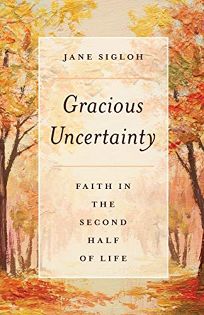I probably should have written this post earlier in the month, but better late than never! According to the Bible, hope is an important component of faith. My Bible dictionary defines it as:
“reliance on God’s blessing ad provision; the expectation of future good.
The author of Hebrews puts it this way:
“”Now faith is the assurance of things hoped for, the conviction of things not seen.” Hebrews 11:1
In other words, our Christian hope is not just a wish, it is a confident belief that God’s in charge and he is working all things for our good.
This hope is based upon the Scripture:
“For whatever was written in former days , was written for our instruction, that through endurance and the encouragement of the Scriptures we may have hope.” Romans 15:4
and on the promises of God:
” … in hope of eternal life, which God who never lies, promised before the ages began and at the proper time manifested in his word through the preaching with which I have been entrusted …. ” Titus 1:2-3
It is described as living (1 Peter 1:3), good (2 Thess.2:16), sure and steadfast (Hebrews 6:19) and is listed as one of the great virtues in 1 Cor. 13:13. It produces purity (1 John 3:3), patience (Romans 8:25), courage (Romans 5:4-4), and joy (Romans 12:12). It imparts salvation (Romans 8:23), assurance (Hebrews 6:18-19) and stability (Col. 1:23).
What a wealth of blessing are wrapped into this one word! No wonder it is mentioned so frequently in the Psalms, as the Lord is praised.
“Let your steadfast love, O Lord be upon us, even as we hope in you.” Psalm 33:22
Readers, may you always have the hope of the Lord in your life!




 This was originally published in our denomination’s magazine, The Lutheran Ambassador
This was originally published in our denomination’s magazine, The Lutheran Ambassador Psalm 51 is David’s cry to the Lord for forgiveness. It’s one of my favorite passages in the Psalms. David has just realized his sins against the Lord, which happen to include adultery and murder.
Psalm 51 is David’s cry to the Lord for forgiveness. It’s one of my favorite passages in the Psalms. David has just realized his sins against the Lord, which happen to include adultery and murder.
 Most of the time I am reading two books at once: one that is just for fun, and one that builds me up in some way. I read my serious book for a bit first thing in the morning (when I’m fresher) and the other one throughout the day and before bed. Right now my morning book is called, Gracious Uncertainty: Faith In The Second Half of Life by Jane Sigloh. In the forward, Jane is described as a “wife, mother, grandmother, teacher, poet, vintner, cook, gardener, and story keeper.” The book is a serious of short essays, starting with a memory about her spiritual life, many from her childhood and youth. It has inspired me to look back on my own spiritual journey and consider writing some of those memories down for my children and grandchildren.
Most of the time I am reading two books at once: one that is just for fun, and one that builds me up in some way. I read my serious book for a bit first thing in the morning (when I’m fresher) and the other one throughout the day and before bed. Right now my morning book is called, Gracious Uncertainty: Faith In The Second Half of Life by Jane Sigloh. In the forward, Jane is described as a “wife, mother, grandmother, teacher, poet, vintner, cook, gardener, and story keeper.” The book is a serious of short essays, starting with a memory about her spiritual life, many from her childhood and youth. It has inspired me to look back on my own spiritual journey and consider writing some of those memories down for my children and grandchildren.